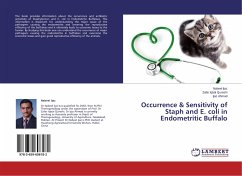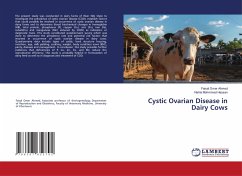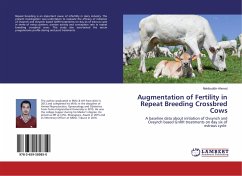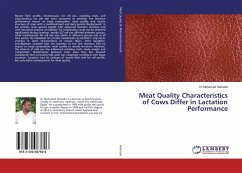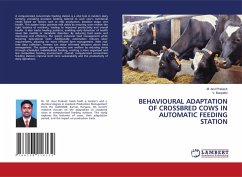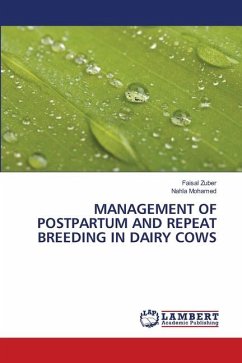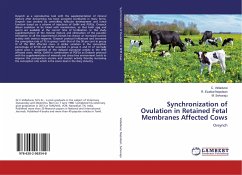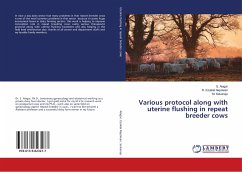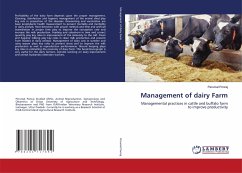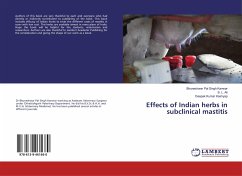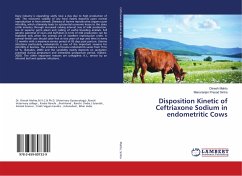
Disposition Kinetic of Ceftriaxone Sodium in endometritic Cows
Versandkostenfrei!
Versandfertig in 6-10 Tagen
36,99 €
inkl. MwSt.

PAYBACK Punkte
18 °P sammeln!
Dairy industry is expanding vastly now a day due to high production of milk. The economic viability of any herd mainly depends upon normal reproduction in farm animals. Diseases of bovine reproductive organs cause infertility, which ultimately leads to substantial economic losses to the dairy cattle industry through increased calving interval, loss of milk production, loss of superior germ plasm and culling of useful breeding animals. Full genetic potential of cows and buffaloes in term of milk production can be exploited only when the animals are of excellent reproductive order. A normal fert...
Dairy industry is expanding vastly now a day due to high production of milk. The economic viability of any herd mainly depends upon normal reproduction in farm animals. Diseases of bovine reproductive organs cause infertility, which ultimately leads to substantial economic losses to the dairy cattle industry through increased calving interval, loss of milk production, loss of superior germ plasm and culling of useful breeding animals. Full genetic potential of cows and buffaloes in term of milk production can be exploited only when the animals are of excellent reproductive order. A normal fertile cow should calve first at two years of age and then in every 12 months with a maximum service period of 85 days post partum. Uterine infections particularly endometritis is one of the important reasons for infertility in bovines. The incidence of bovine endometritis varies from 15 to 57 %, (Sahadev, 2005) and the variability mainly depends on sanitation practised during peripartum and immediate postpartum period, (Gilbert, 2003). The other important reasons are unhygienic A.I., service by an infected bull and systemic infections.



